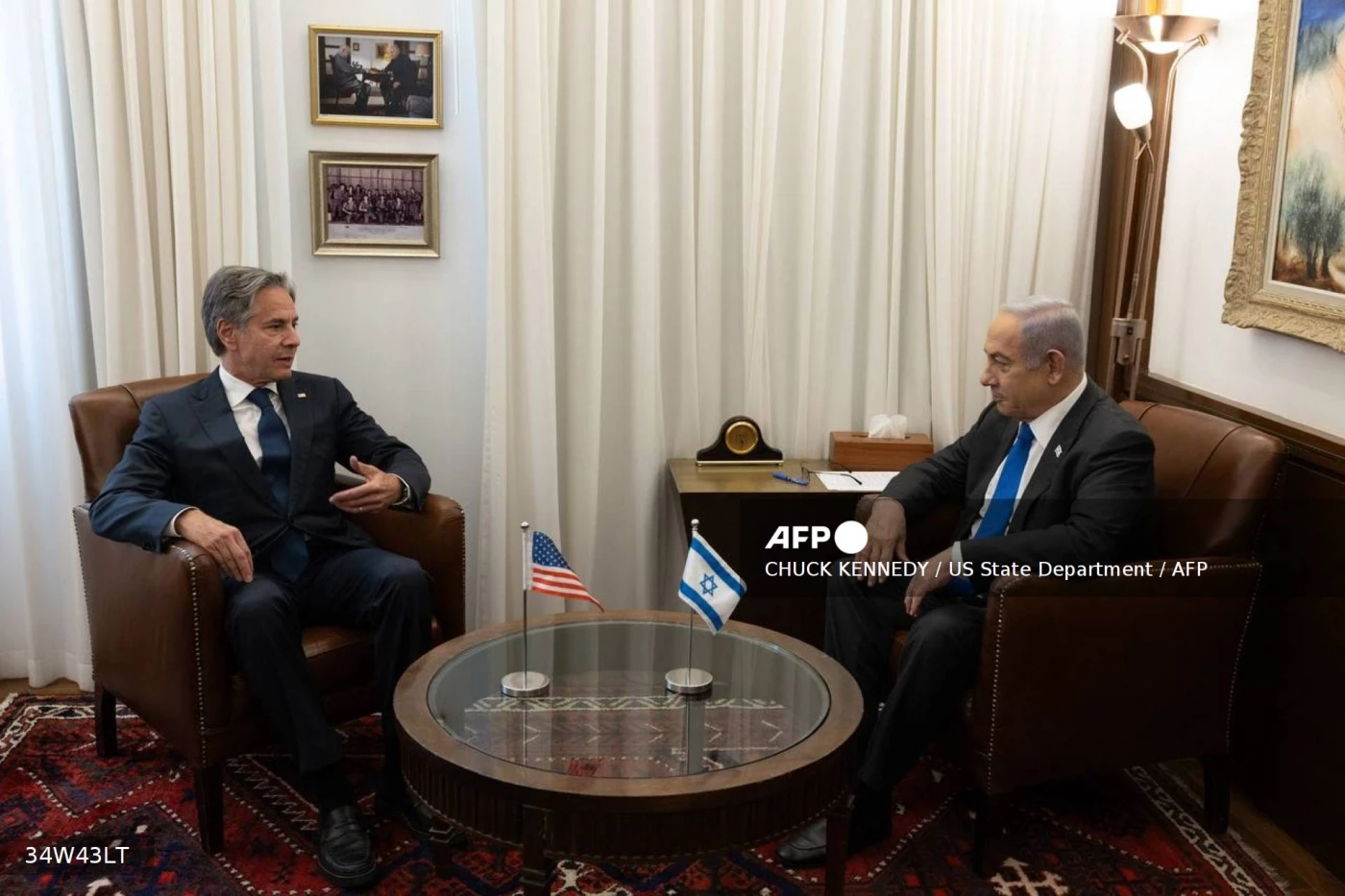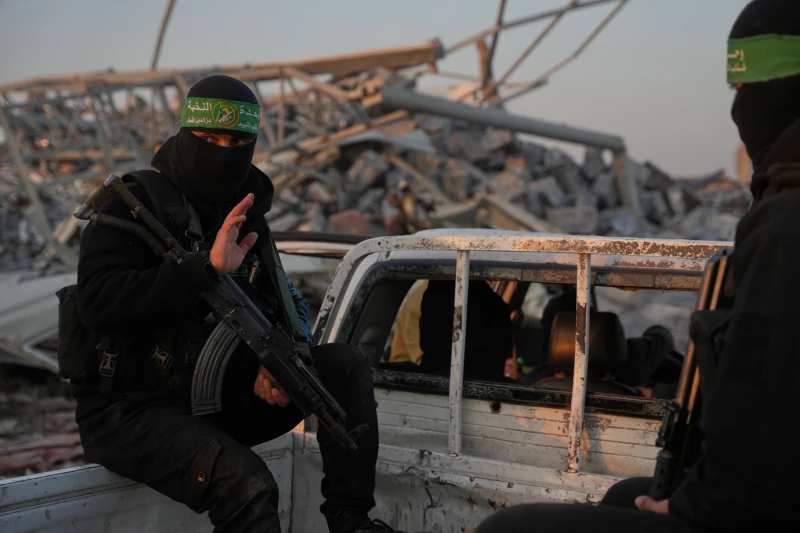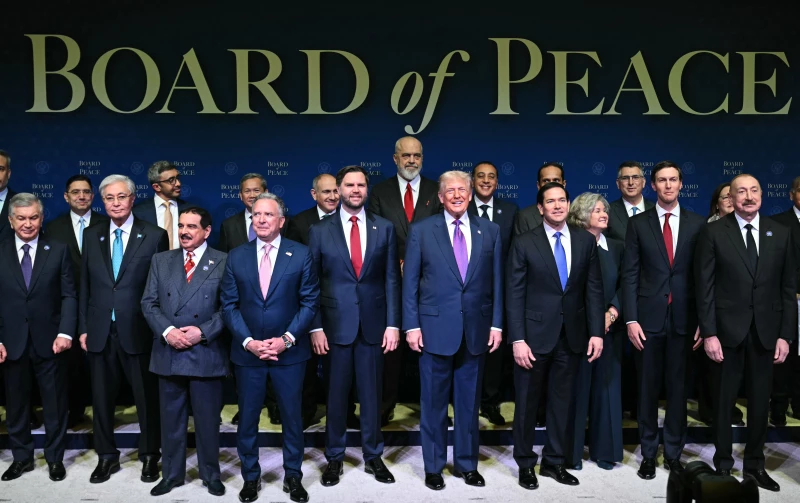US Secretary of State Antony Blinken will hold talks with key Israeli opposition figures on Tuesday, a day after he arrived in the country to push a ceasefire plan for the war in Gaza.
His visit is part of a drive by the United States to secure a ceasefire in the eight-month war between Israel and Palestinian militant group Hamas.
On Monday, the UN Security Council adopted a US-drafted resolution supporting a six-week ceasefire plan, under which Israel would withdraw from Gaza population centres and Hamas would free hostages taken during the October 7 attacks that triggered the war.
Blinken will on Tuesday meet Benny Gantz, a centrist and former army chief who quit Prime Minister Benjamin Netanyahu's government on Sunday, in Tel Aviv, as well as opposition leader Yair Lapid.
The United States, a staunch ally of Israel, had been widely criticised for blocking several previous UN draft resolutions calling for a ceasefire.
US ambassador Linda Thomas-Greenfield said the Security Council had "voted for peace".
"This Council sent a clear message to Hamas: accept the ceasefire deal on the table. Israel has already agreed to this deal and the fighting could stop today if Hamas would do the same," she said after the UN session.
Hamas said Monday it "welcomes" the vote and reaffirmed its willingness to cooperate with mediators.
Palestinian president Mahmoud Abbas described the UN vote as a "step in the right direction".
The United States has expressed hopes that Abbas's Palestinian Authority, which is based in the West Bank and which has no authority over Gaza, will play a role in managing the territory in the future.
Road to calm?
After a stopover in Egypt, where he called on regional governments to "press Hamas to say yes" to the ceasefire proposal, Blinken met Netanyahu in Jerusalem on Monday.
On his eighth tour of the region since the start of the war, Blinken is also expected to stop in Jordan and Qatar.
The truce plan had initially been announced on May 31 by US President Joe Biden.
In Jerusalem, Blinken told Netanyahu it would "unlock the possibility of calm along Israel's northern border and further integration with countries in the region", according to the State Department.
Israeli forces and Iran-backed Hezbollah fighters in Lebanon have exchanged regular cross-border fire during Gaza's war.
In the Gaza Strip, Israeli forces carried out fresh strikes early Tuesday, with hospital sources reporting several Palestinians killed in the centre of the territory.
Earlier, witnesses in north and central Gaza reported helicopter gunfire and naval shelling hitting Gaza City, and air strikes on Deir al-Balah.
Street battles raged in the southern areas of Rafah and Khan Yunis, where bodies were seen lying in the streets and Palestinian civilians were fleeing, an AFP correspondent said.
In Jabaliya in northern Gaza, Soad Al-Qanou said her young child Amjad is suffering from malnutrition.
"This war has destroyed our lives and turned them upside down," she told AFP.
"There is no food, no drink, there is siege and destruction everywhere."
'Real victory'
Netanyahu suffered a major political blow when Gantz and a second member of his war cabinet quit on Sunday.
Gantz criticised Netanyahu for failing to outline a post-war governance plan for Gaza, and said the prime minister "is preventing us" from a "real victory".
On Tuesday, Israeli Defence Minister Yoav Gallant criticised a controversial law passed by the parliament and backed by Netanyahu to allow the military conscription of ultra-Orthodox Jews.
Netanyahu has maintained his objective of destroying Hamas, in power in the Gaza Strip since 2007 and considered a terrorist organisation by Israel, the United States and the European Union.
Hamas's October attack resulted in the deaths of 1,194 people, mostly civilians, according to an AFP tally based on Israeli official figures.
The militants also seized 251 hostages, more than 100 of whom were released during a November truce.
In response, the Israeli army launched an offensive on the Gaza Strip, which left at least 37,124 dead, the majority of them civilians, according to data from the health ministry of the Hamas-led Gaza government.
After a rescue operation on Saturday, 116 hostages remain in Gaza, though the army says 41 of them are dead, according to the Israeli military.
While Israelis celebrated the return of the four captives in good physical health, Palestinians condemned a toll from the rescue operation that health officials in the Hamas-ruled territory said killed 274 people and wounded almost 700, many of them women and children.
Among the hostages declared dead by the Israeli military was 80-year-old Yoram Metzger. His wife Tami Metzger blames her own government for his death.
"If the government had stopped the war" he would still be alive, said Metzger, whose husband remained in Gaza after her own release from captivity in November.
Many other relatives of hostages have also called for a ceasefire.
Orit Meir, whose son Almog Meir Jan was rescued, said Monday that the hostages "need an agreement to return home safe and sound".



 Facebook
Facebook
 LinkedIn
LinkedIn
 Telegram
Telegram
 X
X


